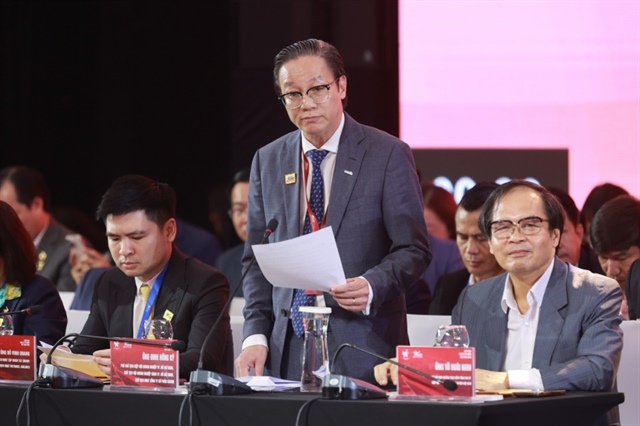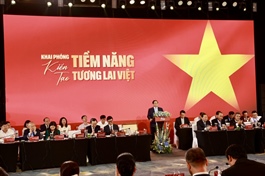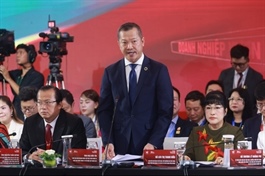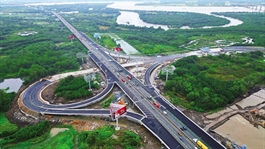Building green infrastructure, removing legal bottlenecks for urban development
Building green infrastructure, removing legal bottlenecks for urban development
The business community has emphasised that Vietnam stands at a crucial crossroads: either decisively transform towards sustainable development, or face the risk of urban decline.

Dinh Hong Ky, chairman of the Ho Chi Minh City Green Business Association and vice chairman of the Ho Chi Minh City Business Association |
Dinh Hong Ky, chairman of the Ho Chi Minh City Green Business Association and vice chairman of the Ho Chi Minh City Business Association, stressed that green transition is no longer a trend but a matter of survival, especially for major cities like Hanoi, Ho Chi Minh City, Danang, Haiphong, and Can Tho.
These urban centres are grappling with a series of unique challenges: risks of urban degradation (with 60-70 per cent of its characteristics already present in Hanoi and Ho Chi Minh City), population pressure and migration, and ecological imbalance, as well as issues of identity and social equity.
He said that Vietnam's vision should be to build liveable green cities that also rise as financial and logistics hubs of Southeast Asia. This must be based on integrated NEXUS principles (water, energy, materials, ecology, emissions), a low-carbon circular economy, climate adaptation, data transparency and digitalisation, and a just transition that ensures no one is left behind.
“To realise this, businesses must play a central and emerging role, supported by a flexible ecosystem of public-private-international cooperation,” he emphasised.
Ky proposed an action framework for a green megacity with four key solution groups: sustainable urban planning (preserving waterways, expanding green public transport, increasing green spaces); incentive policies (carbon tax incentives, green credit, SME transition funds); science and technology (renewable energy, smart environmental monitoring, recycling infrastructure); and social equity (ensuring workers and at-risk communities are not left behind).
He also outlined six pillars of green transition: clean energy, green construction–transport–logistics, eco-industrial development, green urban infrastructure, circular economy, and sustainable agriculture and food systems.
"Vietnam's cities are at a historic turning point: either modern-green-sustainable, or sliding into decline. The future of green cities is not just about skyscrapers, but about harmony with nature and ensuring social justice," he highlighted.

Huynh Bich Ngoc, vice chairwoman and CEO of TTC Group |
From another perspective, Huynh Bich Ngoc, vice chairwoman and CEO of TTC Group, focused on challenges in industrial and residential real estate. “While Vietnam enjoys a major advantage of a safe and stable investment environment, development must prioritise modern, high-tech, and environmentally friendly industrial zones rather than sheer numbers,” she raised.
Ngoc proposed special preferential policies for reopening industrial parks and businesses adopting green and modern models, aligned with the net-zero target. This will strengthen enterprises' long-term competitiveness and create momentum for the broader economy.
Regarding residential real estate, she stated that while housing demand is huge, many projects remain “frozen” due to prolonged legal bottlenecks. She urged the government to review and simplify procedures related to planning, construction permits, and land allocation, particularly project approval.
“Shortening legal procedures will help businesses cut costs and deliver more affordable housing products,” she stressed.
Citing an example in Lam Dong province, TTC is expanding the historic Valley of Love - over 100 years old - into an ecotourism and resort complex featuring a “Goddess of Love” statue expected to set a Guinness World Record. However, the project faces obstacles from overlapping regulations, reflecting the typical difficulties enterprises encounter that require government resolution.
“While Vietnam's legal framework and development criteria are gradually improving, achieving the goal of double-digit growth requires timely, decisive action from the government, ministries, and local authorities,” Ngoc emphasised. “Enterprises have great confidence in the country's strong transformation and breakthrough development in the near future.”
- 17:53 18/09/2025
























